Gold of Our Fathers - [4]
So, much contributed to Dawson’s feeling of contentment: the lifting of the worries over his beloved boy, his promotion and subsequent uptick-very slight, but better than nothing-in his salary, and Christine’s recent promotion to an assistant headmistress at her school.
He glanced at his phone. “Shall we go?” he asked Christine.
She nodded. “I think so.”
Dawson walked over to the swings and joined Sly and Hosiah for a few minutes before calling time. Then it was back to the car with Hosiah riding atop his dad’s shoulders. Dawson felt remarkably happy, but he should have known that nothing good lasts long. Or more accurately, he didknow. He had simply forgotten.
CHAPTER TWO
Monday morning Dawson made his way to work on his Honda motorcycle. It was the fastest way to deal with Accra’s choked traffic. It was also dangerous. Survival on a motorcycle required a certain level of aggression and without question, catlike reflexes. At Kwame Nkrumah Circle, the new overpass was open, but for all its complexity, Dawson wasn’t sure whether it helped or worsened the chaos.
Oh, Ghana, he thought, shaking his head. Why can we never get it right the first time? With his surgical mask on to filter out some of the vehicle exhaust fumes, Dawson wound through cars and tro-tros like a snake evading capture. In Accra’s traffic tangle, the margins for vehicles and pedestrians alike were razor thin.
The congestion cleared somewhat once Dawson got onto Ring Road Central, and there was only one more logjam to tackle at the Ako Adjei Interchange before he got to the Criminal Investigations Department Central Headquarters on Ring Road East. Civilian vehicles were no longer allowed in what used to be parking spaces around the building, and even official police vehicles entering were checked underneath with long-handled inspection mirrors. Terrorism wasn’t an improbability for Ghana anymore. Often, it engulfed parts of Nigeria only two countries away to the east. One could not be too careful.
Other things had changed too. In the previously empty space between CID and the Ghana Police Headquarters, a separate entity, the public relations building, had been completed. The new structure would have press conference and media rooms with Wi-Fi for reporters to file their stories in a comfortable atmosphere. Evidently the Ghana Police Service (GPS) had decided it was better to win friends and influence people than to make enemies. The seven-story CID building, which had been around for decades, was itself undergoing piecemeal improvements as well. It had a new sun-yellow coat of paint.
Dawson parked the Honda outside the rear wall of the CID premises and walked around to the front entrance, where the sentry, a sergeant, saluted him and deferentially waved him through.
Dawson went up the narrow stairway to the fourth floor detectives’ room. Apart from the four large tables and a bunch of scattered chairs, the room was quite bare, with no adornments on the beige walls. This time of the year was the coolest, and a light, refreshing breeze came through the now modern tinted sliding panes that had finally replaced the old-fashioned louvers.
This room was always noisy-a microcosm of Accra itself. Officers of every rank from lance corporal up to chief inspector, Dawson’s new title, sat writing reports or stood around perched against the tables talking, arguing, and laughing. Don’t people have anything to do? Dawson wondered. He caught a snatch of a debate among four officers on the veracity of a bizarre news item about a woman accused of bestiality, and a more reasoned but just as vociferous discussion around the economic mess Ghana suddenly found itself in. In spite of offshore oil now flowing, the cost of living had shot up. That meant everything: fuel, transportation, food, and lodging. Like so many other Ghanaians, Dawson and Christine had been experiencing the economic pinch with a sinking feeling that Ghana was sliding backward.
In the midst of the racket in the room, two male officers were interviewing a handcuffed male suspect while other officers stood around watching. CID didn’t have private interrogation rooms. One used whatever space one could find.
Dawson’s junior partner in the Homicide Division of the Crime Unit, Inspector Philip Chikata, was in the middle of another heated discussion with a fellow officer over which soccer team was most likely to win the next Africa Cup.
“Morning, boss,” Chikata said, as Dawson pulled up a chair and sat opposite him.
“Morning, Philip.”
Dawson shook hands and snapped fingers with Chikata’s companion, a corporal who was back from spending two weeks on duty in the mayhem of the charge office on the ground floor.
“How are you?” Dawson greeted him in Twi. “How was charge?”
“Fine, sir,” the corporal said. “But I’m glad to be back.”
“What do you think?” Chikata asked Dawson. “Ghana will beat Egypt in the next round, anaa am I lying?”
Dawson shook his head. “You know I don’t talk sports or politics at work.”
“Please, excuse me, sir,” the corporal said, standing up. “I have court this morning.”
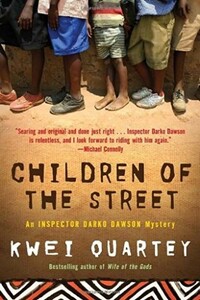
"Searing and original and done just right… Inspector Darko Dawson is relentless, and I look forward to riding with him again." – Michael ConnellyIn the slums of Accra, Ghana's fast-moving, cosmopolitan capital, teenagers are turning up dead. Inspector Darko Dawson has seen many crimes, but this latest string of murders – in which all the young victims bear a chilling signature – is the most unsettling of his career. Are these heinous acts a form of ritual killing or the work of a lone, cold-blooded monster? With time running out, Dawson embarks on a harrowing journey through the city's underbelly and confronts the brutal world of the urban poor, where street children are forced to fight for their very survival – and a cunning killer seems just out of reach.
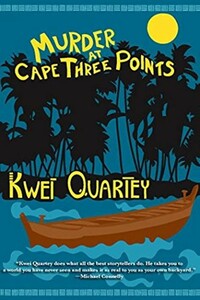
At Cape Three Points on the beautiful Ghanaian coast, a canoe washes up at an oil rig site. The two bodies in the canoe – who turn out to be a prominent, wealthy, middle-aged married couple – have obviously been murdered; the way Mr. Smith-Aidoo has been gruesomely decapitated suggests the killer was trying to send a specific message – but what, and to whom, is a mystery.The Smith-Aidoos, pillars in their community, are mourned by everyone, but especially by their niece Sapphire, a successful pediatric surgeon in Ghana's capital, Accra.
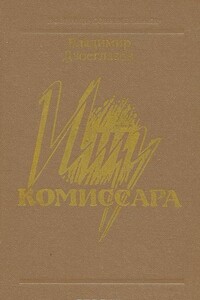
Действие романа сибирского писателя Владимира Двоеглазова относится к середине семидесятых годов и происходит в небольшом сибирском городке. Сотрудники райотдела милиции расследуют дело о краже пушнины. На передний план писатель выдвигает психологическую драму, судьбу человека.Автора волнуют вопросы этики, права, соблюдения законности.
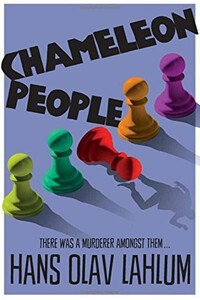
From the international bestselling author, Hans Olav Lahlum, comes Chameleon People, the fourth murder mystery in the K2 and Patricia series.1972. On a cold March morning the weekend peace is broken when a frantic young cyclist rings on Inspector Kolbjorn 'K2' Kristiansen's doorbell, desperate to speak to the detective.Compelled to help, K2 lets the boy inside, only to discover that he is being pursued by K2's colleagues in the Oslo police. A bloody knife is quickly found in the young man's pocket: a knife that matches the stab wounds of a politician murdered just a few streets away.The evidence seems clear-cut, and the arrest couldn't be easier.
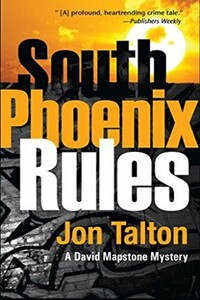
A handsome young New York professor comes to Phoenix to research his new book. But when he's brutally murdered, police connect him to one of the world's most deadly drug cartels. This shouldn't be a case for historian-turned-deputy David Mapstone – except the victim has been dating David's sister-in-law Robin and now she's a target, too. David's wife Lindsey is in Washington with an elite anti-cyber terror unit and she makes one demand of him: protect Robin.This won't be an easy job with the city police suspicious of Robin and trying to pressure her.

Частный детектив Андрей Шальнев оказывается вовлеченным в сложную интригу: ему нужно выполнить заказ криминального авторитета Искандера - найти Зубра, лидера конкурирующей группировки. Выполняя его поручение, Андрей неожиданно встречает свою старую знакомую - капитана ФСБ Кристину Гирю, участвующую под прикрытием в спецоперации по ликвидации обеих банд.

From the creator of the groundbreaking crime-fiction magazine THUGLIT comes…DIRTY WORDS.The first collection from award-winning short story writer, Todd Robinson.Featuring:SO LONG JOHNNIE SCUMBAG – selected for The Year's Best Writing 2003 by Writer's Digest.The Derringer Award nominated short, ROSES AT HIS FEET.THE LONG COUNT – selected as a Notable Story of the Year in Best American Mystery Stories 2005.PLUS eight more tales of in-your-face crime fiction.
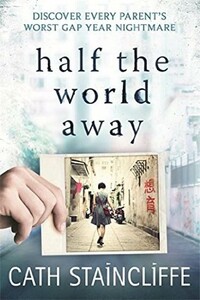
Lori Maddox chooses to spend the year after university travelling and visits China where she finds casual work as a private English tutor. Back in Manchester, her parents Joanna and Tom, who separated when Lori was a toddler, follow her adventures on her blog. When Joanna and Tom hear nothing for weeks they become increasingly concerned, travelling out to Chengdu in search of their daughter. Landing in a totally unfamiliar country, Joanna and Tom are forced to turn detective, following in their daughter's footsteps.